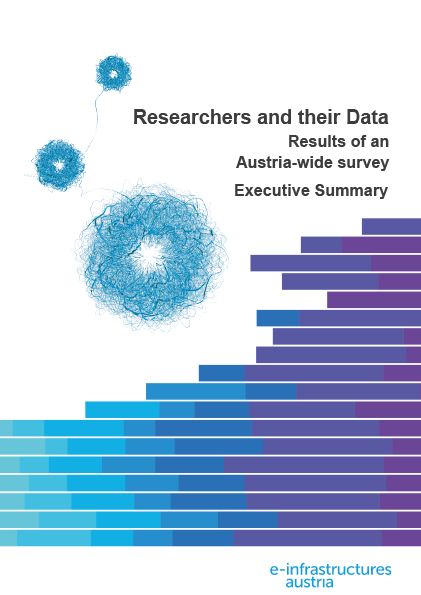Posted: December 15th, 2017 | Author: Sven | Filed under: found on the net, Report, Research Data | Tags: business model, data repositories, oecd | Comments Off on OECD publishes report on business models for sustainable data repositories
 In 2007, the OECD Principles and Guidelines for Access to Research Data from Public Funding were published and in the intervening period there has been an increasing emphasis on open science. At the same time, the quantity and breadth of research data has massively expanded. The promise of open (research) data is that they will not only accelerate scientific discovery and improve reproducibility, but they will also
In 2007, the OECD Principles and Guidelines for Access to Research Data from Public Funding were published and in the intervening period there has been an increasing emphasis on open science. At the same time, the quantity and breadth of research data has massively expanded. The promise of open (research) data is that they will not only accelerate scientific discovery and improve reproducibility, but they will also
speed up innovation and improve citizen engagement with research.
However, for the benefits of open science and open research data to be realised, these data need to be carefully and sustainably managed so that they can be understood and used by both present and future generations of researchers. Data repositories are where the long-term stewardship of research data takes place and hence they are the foundation of open science. So, the development of sustainable business models for research data repositories needs to be a high priority in all countries. Read the rest of this entry »
Posted: December 14th, 2016 | Author: Sven | Filed under: Report, Research Data | Tags: big data, Guidelines, oecd, privacy | Comments Off on OECD publishes new guidelines on research ethics & new forms of data
 The variety and volume of the New Forms of Data that are available with potential to inform research
The variety and volume of the New Forms of Data that are available with potential to inform research
in the social sciences is rapidly expanding. Much of this falls in the category of ‘Big Data’ which are
characterised by their size and complexity and the fact that they are often not amenable to the more
traditional forms of statistical analysis used in social science research.
New kinds of data are rapidly becoming available in massive quantities, providing a record of the transactions we carry out, the communications we make and other social and economic activities. These data offer significant potential for research in the social sciences and beyond, with the possibility of new insights and benefits to society, health and the economy. Although these new forms of data provide exciting possibilities for future research, using them also presents ethical and practical challenges – the risk of disclosure of identities, the ethics of using such data in research and reputational risks for organisations collecting or creating data.
Read the rest of this entry »
Posted: July 21st, 2016 | Author: Sven | Filed under: German, Projects, Research Data | Tags: infrastructure, network | Comments Off on New countrywide RD-INF Project approved: Generic Research Data Infrastructure (GeRDI) ready to get off the starting blocks
 In my previous post, I presented some analyses and recommendations the RfII (German Council for Scientific Information Infrastructures) made for the future development and structuring of the German national landscape on research data management. For instance, the RfII found, that
In my previous post, I presented some analyses and recommendations the RfII (German Council for Scientific Information Infrastructures) made for the future development and structuring of the German national landscape on research data management. For instance, the RfII found, that
‘there is an overall absence of coordination, and current efforts often take the form of parallel, project-based initiatives. Universal access to services for data management is lacking, as the key actors at present are individual institutions and organisations, and their efforts often suffer from limited financing and/or excessive niche focus. In addition, the high staff turnover means that valuable know-how is frequently lost. Furthermore, the range of services being provided is impaired by the absence of governance mechanisms which could impart greater strategic direction.’
Currently, when scientists generate research data often the question arises where to store the data. Currently, only a handful of universities already have an appropriate infrastructure in place while for the big majority such a research data infrastructure is still missing.
Also from the perspective of a researcher who is looking for (reusing) data already available, the current state is unsatisfactory: The few research data infrastructures currently available at German universities, but also other research data centres from different subjects, are hardly linked with other data repositories and often remain data silos. Read the rest of this entry »
Posted: July 19th, 2016 | Author: Sven | Filed under: German, Report, Research Data | Tags: funding, recommendations | Comments Off on ‘Council for Scientific Information Infrastructures’ publishes recommendations on RDM structures and processes
 In June, the German Council for Scientific Information Infrastructures (RfII) has published some recommendations on determinats of future research data management and the development of corresponding infrastructures.
In June, the German Council for Scientific Information Infrastructures (RfII) has published some recommendations on determinats of future research data management and the development of corresponding infrastructures.
Because I believe that these recommendations are also of broader interest to our readers, I would like to highlight some of recommendations of the report.
But first of a all, some introductory words on the RfII: The German Council for Scientific Information Infrastructures was established in November 2014. The 24 members work in an honorary capacity and were appointed by the Joint Science Conference of the Federal States and the Federal Government of Germany for a service period of four years. The Rfll was tasked by Germany’s Joint Science Conference (GWK) with formulating broad-based recommendations for the science system in Germany as a whole.
Consequently, the recommendations presented in the report have ramifications for a variety of actors in the domains of politics and science. The Rfll is convinced that the adoption of new ways in dealing with research data as well as long-term preservation and accessibility will be a significant, common challenge for all actors in the years ahead. Read the rest of this entry »
Posted: February 12th, 2016 | Author: Sven | Filed under: found on the net, journals, Research Data | Tags: Linking Data and Publications, publisher | 1 Comment »
 As announced a few days ago, over 400 Elsevier journals will offer direct linking options with datasets in ICPSR. ICPSR, the Inter-university Consortium for Political and Social Research maintains and provides access to a vast archive of social science data – in total more than 500,000 files. It hosts 16 specialized collections of data in education, aging, criminal justice, substance abuse, terrorism and other fields.
As announced a few days ago, over 400 Elsevier journals will offer direct linking options with datasets in ICPSR. ICPSR, the Inter-university Consortium for Political and Social Research maintains and provides access to a vast archive of social science data – in total more than 500,000 files. It hosts 16 specialized collections of data in education, aging, criminal justice, substance abuse, terrorism and other fields.
These datasets become discoverable through corresponding research articles on ScienceDirect, a website operated by the Anglo-Dutch publisher Elsevier. This allows researchers to access underlying research data immediately while reading the research paper, and potentially reuse the data for their own research. Vice versa, research articles on ScienceDirect can also be accessed directly from within the ICPSR datasets providing additional information to place the data into context. An example is available here. Read the rest of this entry »
Posted: December 1st, 2015 | Author: Sven | Filed under: German, Projects, Report, Research Data | Tags: Austria, infrastructure | Comments Off on Austria: New report “Researchers and their Data” published
 A solid research data management system is the foundation of cooperative, open research. In addition such a system fosters reproducibility and verifiability of research.
A solid research data management system is the foundation of cooperative, open research. In addition such a system fosters reproducibility and verifiability of research.
This topic is relevant and up-to-date for researchers, funding bodies and senior posts of scientific institutions, which is currently also underpinned by the pilot for research data of the European Commission.
In this context, the project e-Infrastructures Austria has just released a report that provides an overview of an Austria-wide survey on research data. The survey was carried out at the beginning of 2015. It was directed at the scientific and artistic-scientific personnel of all 21 public universities and three extramural research institutions in Austria.
The project received 3026 completed questionnaires, which is equivalent to an average response rate of 9 %. Read the rest of this entry »
Posted: June 16th, 2015 | Author: Sven | Filed under: Data Sharing, Research Data | Tags: data management, poll, RDA, tools | Comments Off on Action Poll- tools for working with research data
 You are a researcher and you are working with data? Great!
You are a researcher and you are working with data? Great!
This short, anonymous poll- targeted at researchers- aims to characterise the range of research data management tools that are used across domains and regions. It is being conducted by Research Data Alliance (RDA) Long Tail of Research Data Interest Group.
The results will be reported at the next RDA meeting in Paris in September 2015 and also made available through the Long Tail Interest Group webpage.
The poll will be open from June 15 to July 31, 2015 and is available on https://www.surveymonkey.com/r/TVQ7RY6.
It is only one-page long and will take less that 5 minutes to complete.
For more information, please contact: Kathleen Shearer, Executive Director, COAR Read the rest of this entry »
Posted: June 15th, 2015 | Author: Sven | Filed under: found on the net, Research Data | Tags: articles, costs, journals, reproducibility | Comments Off on Article: The Economics of Reproducibility in Preclinical Research
 In 2012, an estimated 114.8 billion $ in the US were spent on life sciences research. Roughly half of it is spent on preclinical research, with government sources providing the majority of funding – approximatly 38 billion US$.
In 2012, an estimated 114.8 billion $ in the US were spent on life sciences research. Roughly half of it is spent on preclinical research, with government sources providing the majority of funding – approximatly 38 billion US$.
Now, three researchers calculate the costs of irreproducible research in preclinical research near 28 billion $ – only for the United States alone. That is the conclusion of a study published in PLoS Biology a few days ago.
In the opinion of the study’s authors, the giant amount of 28 billion $ accumulates, because low reproducibility rates within life science research undermine cumulative knowledge production and contribute to both delays and costs of therapeutic drug development.
Read the rest of this entry »
Posted: March 16th, 2015 | Author: Sven | Filed under: Conference, Data Sharing, Research Data | Tags: Open Data, restricted data, roles for libraries, workshop | Comments Off on Save the date: Workshop “Open data, restricted data and the role of libraries”
 NEREUS – a network of European libraries in Economics and Social Sciences – is happy to announce a pre-conference workshop (2015-6-23 in London) at this year’s LIBER-Conference.
NEREUS – a network of European libraries in Economics and Social Sciences – is happy to announce a pre-conference workshop (2015-6-23 in London) at this year’s LIBER-Conference.
Open Science and open data have become hot topics in recent years. Effective research data management is more and more postulated by research funders. Research infrastructure providers worldwide are busy building up various services and tools for researchers to support them within their research and the management of research data. But how successful are these approaches and their impact in supporting research? How open could or should data be and which role(s) libraries can play to support researchers effectively? Read the rest of this entry »
Posted: October 21st, 2014 | Author: Sven | Filed under: found on the net, journals, Research Data | Tags: academic publishing | Comments Off on Science established “Statistical Board of Reviewing Editors” to investigate data
 In order to provide better oversight of the interpretation of observational data handed in to the journal along with manuscripts, Science established the Statistical Board of Reviewing Editors (SBoRE), which started working on 1st July, 2014.
In order to provide better oversight of the interpretation of observational data handed in to the journal along with manuscripts, Science established the Statistical Board of Reviewing Editors (SBoRE), which started working on 1st July, 2014.
The board consists of experts in various aspects of statistics and data analysis. Their task is to investigate manuscripts, in order to identify issues which need screening, and to suggest experts from the statistics community to examine that data. Editors, BoRE members (members of the BoRE – Board of Reviewing Editors – conduct a rapid quality check of the manuscripts and propose which of them should be reviewed by technical specialists), and reviewers can decide which manuscripts need additional examination of the data analysis or statistical treatment, which will then be handed in to the SBoRE. Read the rest of this entry »
Posted: September 18th, 2014 | Author: Sven | Filed under: EDaWaX, German, Research Data | Tags: data citation, data documentation, data sources, Guidebook, persistent identifiers | Comments Off on Guidebook “Discover-Cite-Document: Research Data in the Social Sciences and Economics” published
 After almost eight months of intense collaborative work, we are happy to announce the release of a guidebook on research data in the social sciences and economics. The idea of writing the guidebook was born in the course of a panel session on last year’s annual meeting of the “Verein für Socialpolitik” (VfS), the largest German-speaking economists association, where Jutta Günther (Halle Institute for Economic Research), Klaus Tochtermann (ZBW), Gert G. Wagner (German Data Forum and DIW Berlin) and Stefan Winkler-Nees (German Research Foundation) discussed both the potential and the need of data sharing in applied economics.
After almost eight months of intense collaborative work, we are happy to announce the release of a guidebook on research data in the social sciences and economics. The idea of writing the guidebook was born in the course of a panel session on last year’s annual meeting of the “Verein für Socialpolitik” (VfS), the largest German-speaking economists association, where Jutta Günther (Halle Institute for Economic Research), Klaus Tochtermann (ZBW), Gert G. Wagner (German Data Forum and DIW Berlin) and Stefan Winkler-Nees (German Research Foundation) discussed both the potential and the need of data sharing in applied economics.
The panellists assessed that there currently is a lack of information on data documentation and citation in academic education.
Consequently, together with our partners from DIW Berlin, GESIS and the German Data Forum, we started to gather information on these topics. One year after the initial panel discussion, the hot off the press booklet was presented at this year’s annual meeting of the Verein für Socialpolitik two weeks ago.
Read the rest of this entry »
Posted: September 17th, 2014 | Author: Sven | Filed under: Data Sharing, found on the net, Research Data | Tags: research data management, Training, UK | Comments Off on New release of Research Data MANTRA (Management Training)
 The Research Data MANTRA course is an open, online training course that provides instruction in good practice in research data management. There are eight interactive learning units on key topics such as data management planning, organising and formatting data, using shared data and licensing your own data, as well as four data handling tutorials with open datasets for use in R, SPSS, NVivo and ArcGIS.
The Research Data MANTRA course is an open, online training course that provides instruction in good practice in research data management. There are eight interactive learning units on key topics such as data management planning, organising and formatting data, using shared data and licensing your own data, as well as four data handling tutorials with open datasets for use in R, SPSS, NVivo and ArcGIS.
This fourth release of MANTRA has been revised and systematically updated with new content, videos, reading lists, and interactive quizzes. Three of the data handling tutorials have been rewritten and tested for newer software versions too. Read the rest of this entry »
Posted: May 16th, 2014 | Author: Sven | Filed under: Report, Research Data | Tags: Germany, infrastructure, RDM, University | Comments Off on German’s Rector Conference recommends RDM as strategic task for university directorates
 In a suggestion published a few days ago, the general meeting of the German’s Rector Conference (Hochschulrektorenkonferenz (HRK), a voluntary association of currently 268 state and state-recognised universities and other higher education institutions (HEI) in Germany at which more than 94 per cent of all students in Germany are registered), has advised university directorates to take the necessary steps to support research data management, crosslinking and long-term preservation of and access to research data. For these important tasks suitable infrastructure components are required – a task the German’s Rector Conference also suggests the university directorates to be responsible for.
In a suggestion published a few days ago, the general meeting of the German’s Rector Conference (Hochschulrektorenkonferenz (HRK), a voluntary association of currently 268 state and state-recognised universities and other higher education institutions (HEI) in Germany at which more than 94 per cent of all students in Germany are registered), has advised university directorates to take the necessary steps to support research data management, crosslinking and long-term preservation of and access to research data. For these important tasks suitable infrastructure components are required – a task the German’s Rector Conference also suggests the university directorates to be responsible for.
Read the rest of this entry »
Posted: March 10th, 2014 | Author: Sven | Filed under: Data Sharing, Projects, Research Data | Tags: data repositories, Data Sharing, Datasets, DOI | Comments Off on Introducing datorium – a new Data Repository Service for the Social Sciences
 The current e-infrastructure for research data management in the field of social sciences in Germany has extended by an important component. Up to now, we faced a fragmented e-infrastructure for documenting, storing, hosting and curating research data in social sciences: On the one hand there are well-established research data centres e.g. for large household survey data. On the other hand appropriate research data infrastructure components for small and medium-sized research projects for instance were, with a few exceptions, almost not available yet. Read the rest of this entry »
The current e-infrastructure for research data management in the field of social sciences in Germany has extended by an important component. Up to now, we faced a fragmented e-infrastructure for documenting, storing, hosting and curating research data in social sciences: On the one hand there are well-established research data centres e.g. for large household survey data. On the other hand appropriate research data infrastructure components for small and medium-sized research projects for instance were, with a few exceptions, almost not available yet. Read the rest of this entry »
Posted: December 18th, 2013 | Author: Sven | Filed under: Data Sharing, Projects, Research Data | Tags: European Commission, Horizon2020, open access | 1 Comment »
 Currently, Europe’s eighth Framework Programme takes form: On December 2013 the European Council has adopted Horizon 2020 programme for research and innovation for the years 2014 to 2020.
Currently, Europe’s eighth Framework Programme takes form: On December 2013 the European Council has adopted Horizon 2020 programme for research and innovation for the years 2014 to 2020.
Horizon 2020, which has a budget of around 77 billion euros, will underpin the objectives of the Europe 2020 strategy for growth and jobs, as well as the goal of strengthening the scientific and technological bases by contributing to achieving a European Research Area in which researchers, scientific knowledge and technology circulate freely. Read the rest of this entry »
 In 2007, the OECD Principles and Guidelines for Access to Research Data from Public Funding were published and in the intervening period there has been an increasing emphasis on open science. At the same time, the quantity and breadth of research data has massively expanded. The promise of open (research) data is that they will not only accelerate scientific discovery and improve reproducibility, but they will also
In 2007, the OECD Principles and Guidelines for Access to Research Data from Public Funding were published and in the intervening period there has been an increasing emphasis on open science. At the same time, the quantity and breadth of research data has massively expanded. The promise of open (research) data is that they will not only accelerate scientific discovery and improve reproducibility, but they will also
 The variety and volume of the New Forms of Data that are available with potential to inform research
The variety and volume of the New Forms of Data that are available with potential to inform research In my previous post, I presented some analyses and recommendations the
In my previous post, I presented some analyses and recommendations the  In June, the German Council for Scientific Information Infrastructures (
In June, the German Council for Scientific Information Infrastructures ( As announced a few days ago, over 400 Elsevier journals will offer direct linking options with datasets in
As announced a few days ago, over 400 Elsevier journals will offer direct linking options with datasets in  A solid research data management system is the foundation of cooperative, open research. In addition such a system fosters reproducibility and verifiability of research.
A solid research data management system is the foundation of cooperative, open research. In addition such a system fosters reproducibility and verifiability of research. You are a researcher and you are working with data? Great!
You are a researcher and you are working with data? Great! In 2012, an estimated 114.8 billion $ in the US were spent on life sciences research. Roughly half of it is spent on preclinical research, with government sources providing the majority of funding – approximatly 38 billion US$.
In 2012, an estimated 114.8 billion $ in the US were spent on life sciences research. Roughly half of it is spent on preclinical research, with government sources providing the majority of funding – approximatly 38 billion US$. NEREUS – a network of European libraries in Economics and Social Sciences – is happy to announce a
NEREUS – a network of European libraries in Economics and Social Sciences – is happy to announce a 
 The
The  In a suggestion published a few days ago, the general meeting of the German’s Rector Conference (
In a suggestion published a few days ago, the general meeting of the German’s Rector Conference ( The current e-infrastructure for research data management in the field of social sciences in Germany has extended by an important component. Up to now, we faced a fragmented e-infrastructure for documenting, storing, hosting and curating research data in social sciences: On the one hand there are
The current e-infrastructure for research data management in the field of social sciences in Germany has extended by an important component. Up to now, we faced a fragmented e-infrastructure for documenting, storing, hosting and curating research data in social sciences: On the one hand there are  Currently, Europe’s eighth Framework Programme takes form: On December 2013 the European Council has adopted Horizon 2020 programme for research and innovation for the years 2014 to 2020.
Currently, Europe’s eighth Framework Programme takes form: On December 2013 the European Council has adopted Horizon 2020 programme for research and innovation for the years 2014 to 2020.





